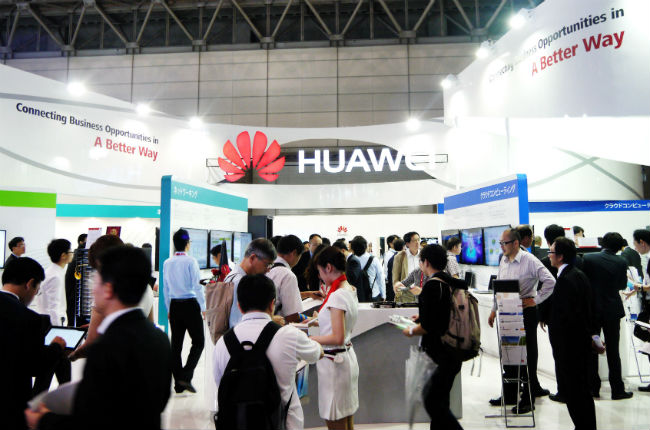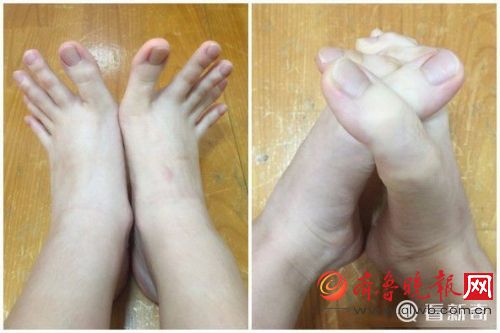

 |
| (file photo) |
South Korea’s National Tax Service is conducting a tax probe into Huawei Korea, the local branch of Chinese tech giant Huawei Technologies, on suspicion of offshore tax evasion, the company told the Korea Times on July 26.
Investigators from the Seoul branch of the National Tax Service are currently examining the transactions between Huawei Korea and its headquarters in Shenzhen, in south China, the report said. The audit is part of a regular tax audit to which the company submits every five years, according to the report. Companies with sales of more than 500 billion won (2.9 million yuan ) are subject to these regular audits.
The latest audit took place after Huawei and Samsung, South Korea’s largest cellphone manufacturer, fired on each other over infringements on 4G-related patents in the past three months.
In May, Huawei sued Samsung Electronics in the U.S. and China, claiming that the Korean IT giant infringed on as many as 11 patents related to the industry standard for fourth-generation (4G) mobile devices.
On July 22, Samsung countersued Huawei for patent infringements through multiple courts in China, escalating the legal conflict between the smart phone rivals.
This audit is the latest case of the Chinese company being hit by the Korean government.
Last month, the prosecution raided Huawei's local unit in downtown Seoul, seizing documents related to the case of a Korean executive of the firm suspected of stealing telecommunications technology from Ericsson-LG, according to South Korean media.
Huawei shipped 108 million smartphones to destinations across the globe in 2015, a figure dwarfed only by Apple's 231.5 million iPhones and Samsung’s 317.2 million phones shipped in the same period.
But Huawei has topped both Samsung and Apple in the Chinese market. According to Strategy Analytics data, in 2015, Huawei shipped 62.2 million units, making the company second only to another Chinese smart phone manufacturer, Xiaomi.
Huawei finding success on global patent battlefield
Chinese media has reported that Ren Zhengfei, or Richard Ren, founder and CEO of Huawei, predicted a “war” over patents between telecoms operators and terminal equipment manufacturers years ago.
“Huawei’s high-profile war against Samsung, the world’s number one smart phone maker, helps advertise its own brand recognition worldwide, and build a reputation as a high-tech holder (I mean it holds key, important technologies). Seeking compensation from possible patent violations is also a common practice among global high-tech companies to protect their due benefits,” read one comment on Guancha, a Chinese news website.
Huawei logged $9.2 billion in R&D spending in 2015, significantly more than Apple’s $8.1 billion.
In recent years, Huawei has continued establishing its patent strength, whether through cross-licensing agreement or lawsuits.
In January 2016, Ericsson and Huawei agreed to extend their global patent licensing agreement, which enabled Huawei to access and implement Ericsson's standard essential patents and technologies globally.
Ren was reportedly “very happy” about the collaboration. He commented, “It’s like I got a pass to the world,” according to Guancha.
On July 5, Huawei filed a lawsuit against T-Mobile U.S., claiming that T-Mobile has been using Huawei’s patented 4G wireless network technology without paying for it.
For the Samsung case, Huawei's intellectual property chief indicated in an interview with the Korea Times that the company was seeking permission to use some of Samsung's technologies rather than asking for financial remuneration.
According to a report from the Guangdong Intellectual Property Office, Huawei licenced 769 patents to Apple in 2015, while the American company offered Huawei 98 patents in return. It has also been revealed that Apple currently pays patent fees to the Chinese telecommunications giant to the tune of hundreds of millions of dollars per year.
Previously, Chinese smartphone manufacturers have been thwarted in their pursuit of success in the global market, due to failure in patent lawsuits.
In December 2014, a court forced Xiaomi to stop selling its phones in India after Ericsson claimed that the upstart company had infringed upon its patents.
 Who Will Fit The Chinese Roles In Game Of Thrones?
Who Will Fit The Chinese Roles In Game Of Thrones? China's Hubei Shennongjia added to World Heritage List
China's Hubei Shennongjia added to World Heritage List "Straddling bus" starts production in east China
"Straddling bus" starts production in east China Girl goes viral for finger-long toes
Girl goes viral for finger-long toes Five made-in-China hi-tech breakthroughs
Five made-in-China hi-tech breakthroughs HK-Zhuhai-Macao Bridge to open to traffic
HK-Zhuhai-Macao Bridge to open to traffic China opens its first combined transport service to Nepal
China opens its first combined transport service to Nepal Students take stylish bikini graduations photos
Students take stylish bikini graduations photos Charming dancing students pose for graduation photos
Charming dancing students pose for graduation photos Top 10 livable Chinese cities
Top 10 livable Chinese cities Top 20 hottest women in the world in 2014
Top 20 hottest women in the world in 2014 Top 10 hardest languages to learn
Top 10 hardest languages to learn China’s Top 10 Unique Bridges, Highways and Roads
China’s Top 10 Unique Bridges, Highways and Roads E-mail scandal ruins US democracy myths
E-mail scandal ruins US democracy myths Boycott calls grow against South Korea
Boycott calls grow against South Korea Convict who had paid sex in jail sparks controversy over corruption
Convict who had paid sex in jail sparks controversy over corruption TCM manufacturer’s listing bid aborted after public outcry over bile extractions
TCM manufacturer’s listing bid aborted after public outcry over bile extractionsDay|Week